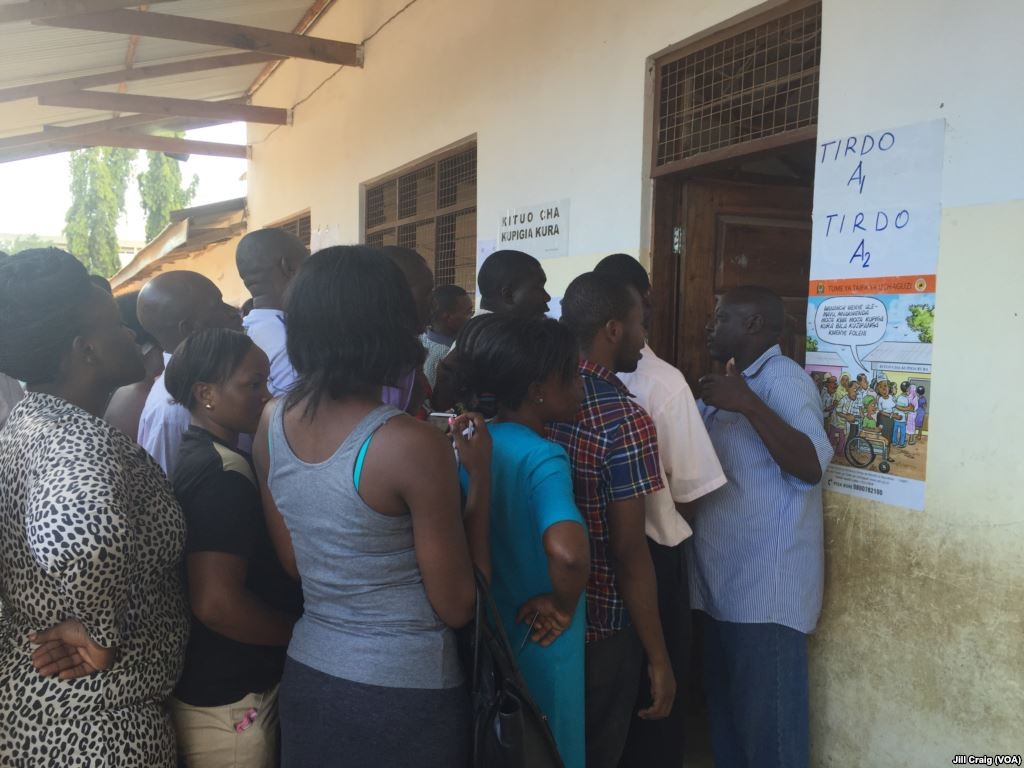The UK government was under pressure on Saturday to review aid worth £200 million (about Sh 433.6 billion) to Tanzania in protest of the manner in which the Zanzibar election was conducted.
A former Cabinet minister in the British government warned against “spraying money around” simply to ensure that Britain kept the United Nations target of spending 0.7 per cent of national income on overseas aid.
The US and the European Union has accused the government for what they believed as undemocratic tendencies following the cancellation of Zanzibar October 25 General Election half way into counting and tallying of votes.
The Zanzibar Electoral Commission (ZEC) said it nullified the election over ‘massive irregularities’ and announced new elections which were held on March 20.
“When there are clear breaches of political rights or human rights they will expect a response in terms of the aid we contribute. The fact that the US has reacted in such a strong way gives a very good signal. We should be reviewing our own contribution in the light of that.”
This week, America accused Tanzania’s government of a “pattern of actions” that undermined democracy and cancelled aid worth $472 million (about 1 trillion) that was to be channeled through the US Millennium Challenge Corporation (MCC).
This placed pressure on Britain to do the same, especially in the wake of widespread concern over the use of the aid budget for controversial projects.
But the Foreign Office said there was no decision to reduce Britain’s support for Tanzania even though Zanzibar’s election had not reflected the “will of the people”. Dr Liam Fox, the former Conservative Defence Secretary, urged the Government to review Britain’s aid for Tanzania.
“Western taxpayers expect their money to be used in an ethical way,” he said.
“When there are clear breaches of political rights or human rights they will expect a response in terms of the aid we contribute. The fact that the US has reacted in such a strong way gives a very good signal. We should be reviewing our own contribution in the light of that.”
The Tanzanian government has responded to the aid cut by promising to focus on local sources of funding its development project. Finance Minister Dr Philip Mpango said last week that the government didn’t bank on MCC money when preparing the national budget.
Britain has met the 0.7 per cent target since 2013, after the budget of the Department for International Development (DFID) jumped by 32 per cent in one year.
“There are lots of places in the world where we could be using our aid effectively to alleviate poverty,” said Dr Fox. “But countries need to earn support from the British taxpayer rather than us spraying money around until we hit 0.7 per cent.”
Owen Paterson, the senior Conservative backbencher and former environment secretary, said that DFID should reduce its aid to Tanzania in line with the US decision.
“The Foreign Office says the election is not valid and we’re carrying on spending the money anyway. This cannot be right,” said Mr Paterson.
“The Americans have acknowledged that this cannot be right and have acted – and we should act accordingly.”
Zanzibar’s election on March 20 was boycotted by the opposition and the ruling party’s CCM candidate, Dr Ali Mohamed Shein claimed victory with 91 per cent of the vote.
The opposition Civic United Front (CUF) were furious because, for decades, Tanzania’s ruling Party of the Revolution has been accused of rigging elections on Zanzibar in order to sabotage their opponents, who favour greater autonomy for the island.
Last October, the authorities cancelled an election on Zanzibar which the CUF candidate claimed he was poised to win. The opposition and the ruling party then held talks to re-run the contest in a fair way.
As these negotiations were taking place, President John Magufuli’s government unilaterally announced that another election would go ahead on March 20, with or without the CUF’s agreement. Fearing that the contest would simply be rigged again, the opposition chose to boycott.
Afterwards, Dianna Melrose, the British High Commissioner in Tanzania, joined the US Ambassador to release a statement condemning the government’s decision to hold the poll. But only America followed this up by cutting its aid.
The US Millennium Challenge Corporation (MCC) concentrates on providing electricity and clean water in rural Africa – as long as governments respect democracy and hold free elections. Washington said that Tanzania’s government had “engaged in a pattern of actions” which broke this requirement and the MCC would “therefore cease all activities” in the country.
Britain remains Tanzania’s second-largest bilateral donor, having increased its aid to the country by a quarter since 2014. “We have made clear that the March elections in Zanzibar cannot be deemed representative of the will of the people,” said a Foreign Office spokesman. “We keep all aspects of our relationships with partner governments under constant review and this will be no exception.”
DFID’s programme in Tanzania is the department’s fifth largest in Africa and Britain’s total aid budget this year is £12.2 billion. All of the political parties promised to keep the 0.7 per cent target because of Britain’s moral obligation to help the poorest. The government also argues that aid spending amounts to an investment in a safer world.
But critics have long argued that Britain should not be tied to a fixed target and aid spending should be closely checked.
“Britain’s aid helps many vulnerable people but we should be careful to ensure that it is used in a way that encourages countries to maintain the highest standards of democracy and freedom,” said Graham Brady, the Conservative MP who chairs the backbench 1922 committee.
“We should look very carefully in an instance like this where an important ally and a major Western donor has seen fit to withdraw its support.”
Mr Brady added: “It’s not a question of whether aid is right or wrong – it’s a question of doing it properly.”

